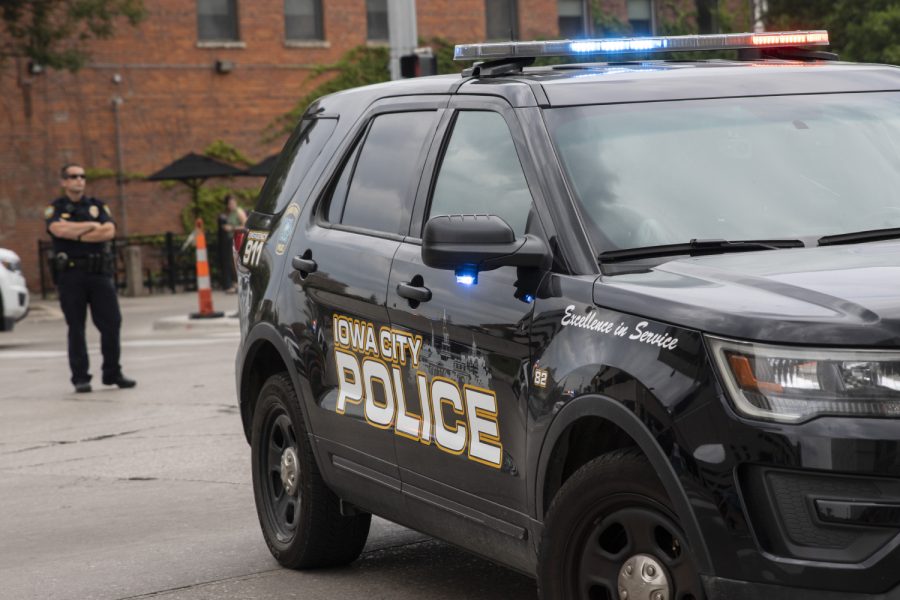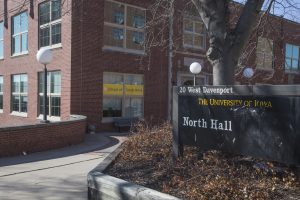City Council holds public forum to discuss mental health resources
On Wednesday, Iowa City City Council, CommUnity, Prelude Iowa, and members of the Iowa Freedom Riders participated in a public forum in Mercer Park. The forum opened up discussion about the Iowa City Police Department’s involvement in mental health and addiction services
Iowa City Police Department vehicles are seen on July 9, 2019.
September 16, 2020
The Iowa City City Council — joined by the Iowa Freedom Riders, Prelude Iowa, and CommUnity in Iowa City — held a public forum on Wednesday to discuss mental-health and addiction services, as well as restructuring the police department.
Citizens gathered in Mercer Park to share concerns regarding community resources. Another topic was a proposal to reroute cases — incidents that would originally be assigned to law enforcement — to professionals that may be more specifically suited for various crises.
Iowa City Mayor Bruce Teague shared his appreciation for the city’s current mental-health and addiction services, saying he hopes to further integrate those initiatives with local law enforcement.
Iowa Freedom Riders supporter David Drustrup said the public is concerned that the training currently required for police officers cannot provide a proper mental-health intervention.
“An actual mental-health professional gets 40 hours of active participation in mental-health situations every week, while police officers get that in a year,” Drustrup said. “I hope we can see the problematic nature of that.”
He went on to say if any amount of reallocation of funds that previously went to law enforcement can relieve some of the barriers to mental-health distribution, saying it would be worth it.
RELATED: Iowa City City Council passes resolution to create Truth and Reconciliation Commission
The Iowa City Police Department officers have undergone crisis intervention training, which teaches de-escalation tactics to officers.
Director of CommUnity Becci Reddus said one reason mental-health resources are less abundant than what is needed is because there are external factors. Reddus said obstacles such as food and housing insecurity are not being given the necessary attention.
“There is not nearly enough mental-health funding, and without the funds, many resources are unable to be provided with 24/7 access,” Reddus said.
Iowa Freedom Riders organizer Raneem Hamad voiced her concern that law enforcement officers are sent out to do jobs that they are ill-equipped to handle. She said that that some of the ICPD’s funding could go to different areas in the community.
“A lot of what the Iowa Freedom Riders have discussed this summer is defunding the police and redirecting those funds to resources in the community that provide necessary crisis management and resources,” Hamad said.
ICPD officer Andrew McKnight is involved in the city’s crisis-intervention program. He said that many on the force support incorporating mental-health services to policing.
“The more mental-health training I receive, the better service I can provide to the community,” he said. “And the more training we provide to officers with de-escalating situations, the better the situation will be.”






